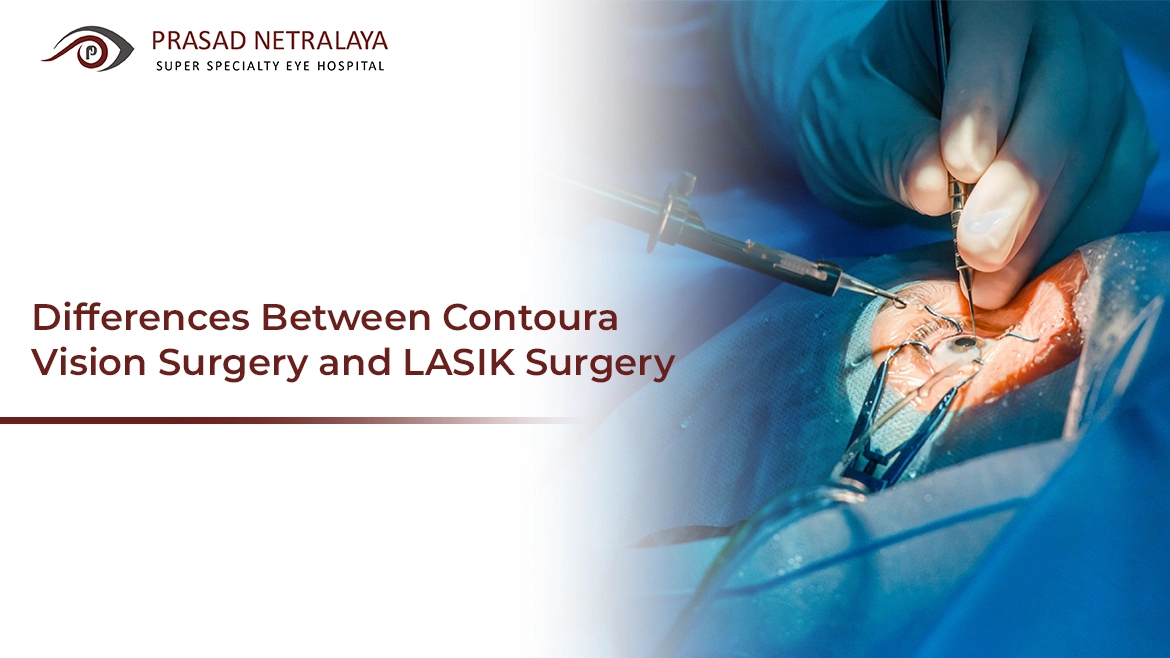Contoura vision and LASIK surgery (Laser-assisted in situ keratomileusis) are two popular laser eye surgery procedures for treating nearsightedness, farsightedness, and astigmatism. In both treatments, the cornea — the eye’s transparent outer layer — is reshaped with a laser to improve its ability to focus light.
Before deciding which procedure is best for you, you should be aware of the significant differences between the two.
In this blog post, we’ll look at the differences between Contoura vision and LASIK surgery, as well as the benefits and drawbacks of each procedure, to help you make the right choice.
Table of Contents
Differences Between Contoura Vision and LASIK Surgery
Both Contoura vision and LASIK surgery are laser eye surgery procedures. However, the differences are noteworthy.
1. Use of Technology
Contoura vision surgery employs cutting-edge technology to create a detailed map of the patient’s cornea. It uses the map to guide the laser to reshape the cornea. The result is a precise and personalized treatment and better visual outcomes for the patient.
What’s important to note here is that Contoura vision surgery, unlike LASIK, doesn’t use any mechanical procedures.
LASIK surgery, on the other hand, reshapes the cornea with the help of a blade and traditional laser.
2. Success Rate
Contoura vision can also correct higher-order aberrations (HOAs), which traditional LASIK can’t correct. Higher-order aberrations are more subtle or specific distortions in the structure of the eye. These aberrations or abnormalities can cause visual distortions like halos and glare.
When compared to LASIK surgery, Contoura vision may have a higher success rate in terms of visual outcomes and vision quality because it can correct both lower and higher-order aberrations. This results in improved eyesight and a higher level of visual satisfaction for the patient.
3. Use of Blades
Contoura vision is a bladeless laser eye surgery procedure and is painless. It creates a flap in the cornea using what’s called a Femtosecond laser. The procedure follows with the use of an Excimer laser, which reshapes the cornea.
LASIK, on the other hand, uses a surgical blade or a laser to create a flap in the cornea. The procedure is considered to be safe and effective. However, It’s possible that some patients may experience pain or discomfort during or after the procedure.
4. Side Effects
One advantage of Contoura vision over LASIK surgery is that they may have a lower risk of some side effects.
Certain LASIK surgery side effects, like dry eyes and temporary visual problems (such as glare), are fairly common. But, complications that result in vision loss are uncommon, and most patients are happy with the result.
Contoura vision surgery is capable of correcting both lower and higher-order aberrations. As a result, it may have a lower risk of side effects, but it is possible to experience glare, halos, image ghosting, and blurred vision.
5. Costs
LASIK surgery cost in India (for both eyes) can be anywhere between Rs. 30,000– 80,000.
Contoura vision surgery for both eyes usually costs between Rs. 95,000–1,15,000.
Pricing may differ based on the treatment centre you choose.
Making a Decision between Contoura Vision and LASIK Surgery
Choosing between Contoura vision and LASIK surgery can be a difficult decision, as both procedures are highly effective in correcting vision problems and have their own unique advantages.
The best option for you will depend on your individual needs and circumstances.
To understand more about your options and choose the best technique for you if laser eye surgery appeals to you, we welcome you to schedule a consultation with one of the experts at Prasad Netralaya.
You can get the crystal-clear eyesight you’ve always desired for an affordable price thanks to our knowledgeable staff and cutting-edge facilities.
Visit our website and get in contact with one of our experts today!



